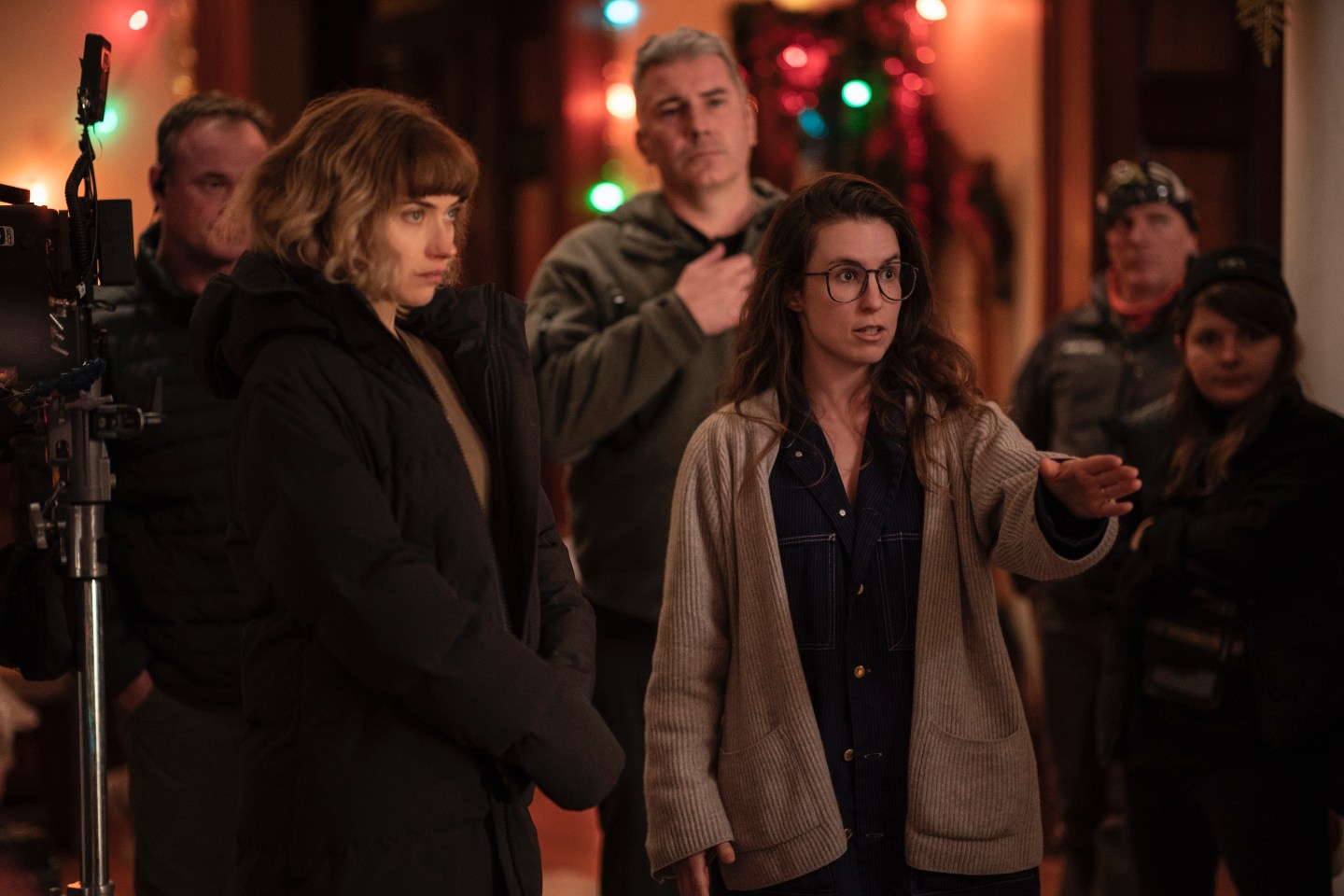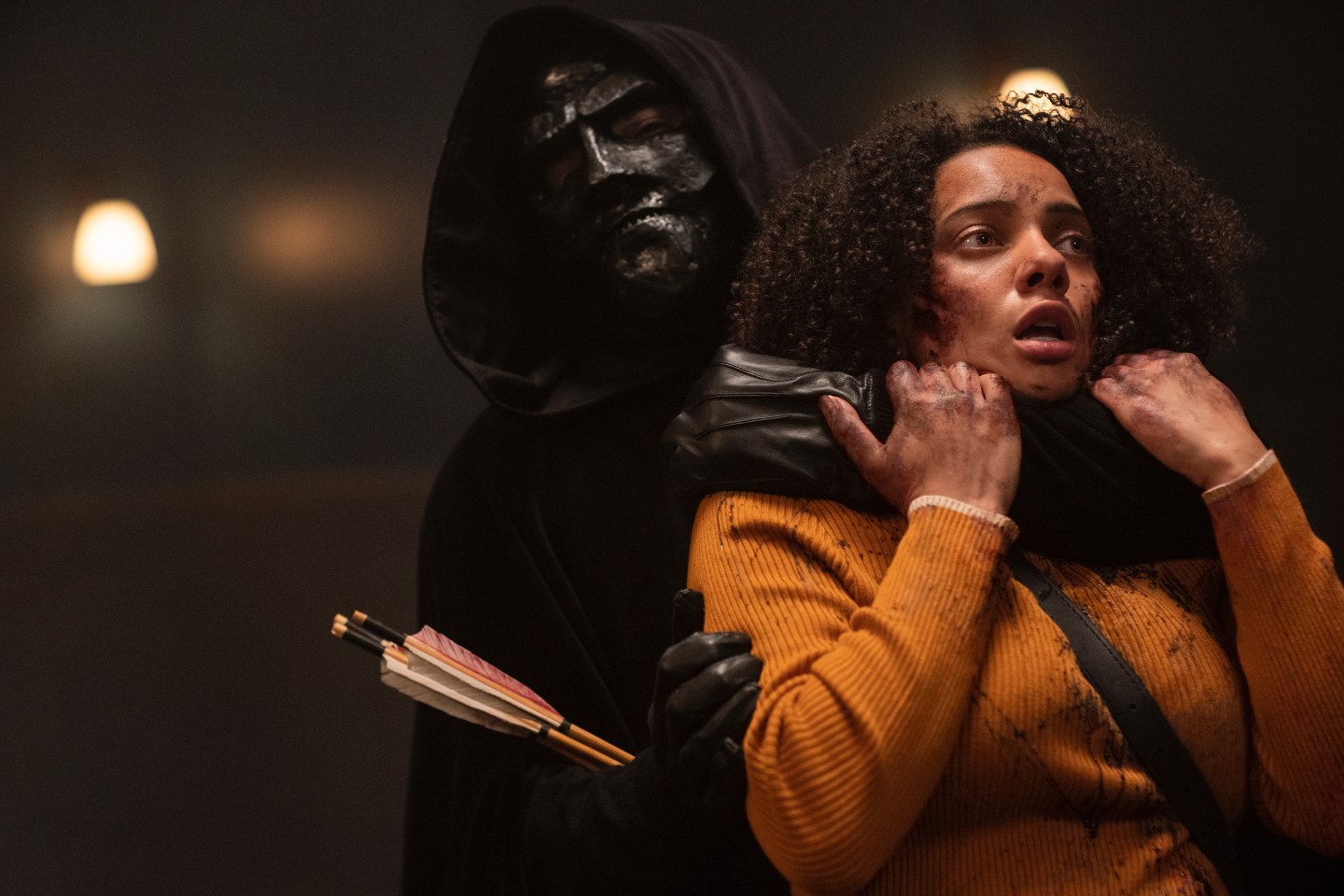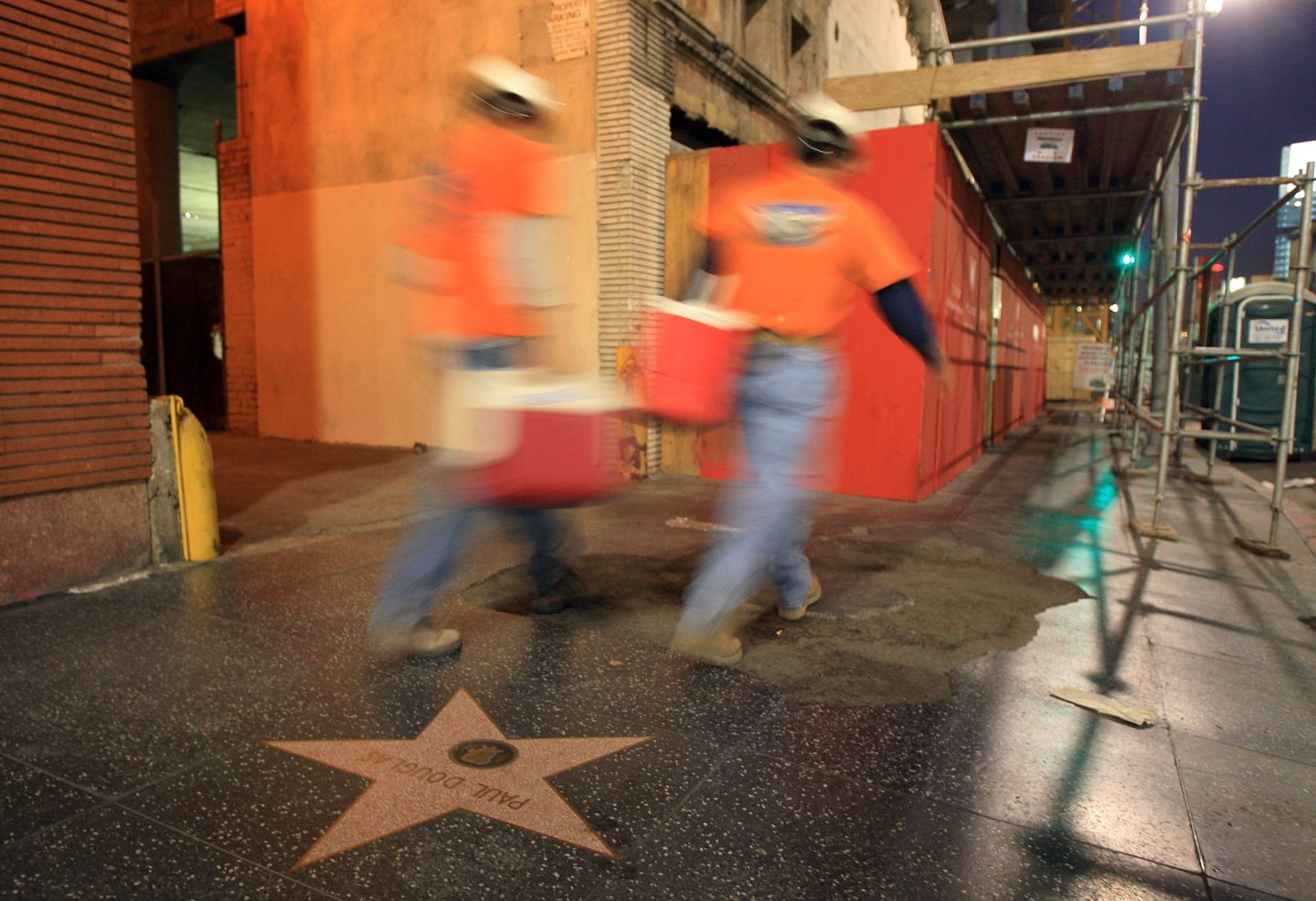In 1974, a year after the Supreme Court legalized the right to abortions in Roe v. Wade, a slasher film called Black Christmas tackled the issue of unwanted pregnancy head-on. Its main character, a college senior named Jess, tells her boyfriend that she’s pregnant and wants to get an abortion. He doesn’t like that, and attempts to force her to change her mind. Meanwhile, an unknown man is sexually harassing Jess and her sorority sisters, repeatedly calling their house to moan, grunt, and scream misogynistic slurs into the phone. Then, one by one, the sorority sisters start getting murdered—by someone the film leads you to believe could be Jess’s controlling boyfriend.
Today, the movie can feel ahead of its time, not to mention relevant in a world where new anti-abortion laws are still being introduced in states around the U.S.
On Friday, a remake of the 1974 Black Christmas premieres in theaters. Written by Sophia Takal and April Wolfe, and directed by Takal, the new Black Christmas carries on the original’s feminist themes and takes them in a direction more relevant to the “#MeToo era.”
Fortune spoke with Takal about what made the 1974 movie so progressive, how to write a feminist slasher film, and why young people should watch Black Christmas.
This conversation has been edited and condensed for clarity.
When did you first see the 1974 Black Christmas?
My friend was doing a screening at his apartment probably 10 years ago. I was watching it with these manly guys who were all horror buffs, and I remember being struck by how well drawn the female characters were—so different from any of the other slasher movies I had ever seen. Even though it was scary and intense, the violence didn’t feel exploitative. The kills were artful. That always stayed with me.
Blumhouse Productions (the new film’s producer) approached you to make the modern day remake, right?
Yes. I had worked with Blumhouse on an episode of their horror series, Into the Dark. Around February or March this year, Jason [Blum, CEO of Blumhouse Productions] called me and said, “We’ve got the rights to Black Christmas. It has to come out this December. There’s no script. You can do what you want.”
That’s nine months—not a normal amount of time to make a movie. But there was also something exhilarating about making a movie that was touching on a cultural moment and knowing it was going to come out in that same time period, so that it would still feel relevant.

In making your movie relevant, were there specific ways you changed it from the 1974 Black Christmas?
It differs quite a lot in terms of plot. I was really inspired by the way Luca Guadagnino remade Suspiria. He captured something essential about the movie, yet made something that didn’t just feel like remaking a movie that was already fantastic and perfect. I approached Black Christmas the same way. The original is such an extraordinary movie. It still resonates in terms of abortion and gender and sexual politics.
So I rewatched the movie and tapped into how it made me feel as a viewer. In the end of the 1974 movie, you think [spoiler alert] the killer is Jess’s boyfriend and she’s stopped him—then at the very end, there’s a shadowy guy in the wings. Watching that at the beginning of 2019 was interesting. Obviously the way to read this is that misogyny, sexism, and toxic masculinity will always be lurking in the shadows.
We’re in the MeToo era, Brett Cavanaugh had just been confirmed to the Supreme Court, and I was feeling like progress is totally cyclical. A lot of the men who had been called out in the beginning of MeToo were starting to come back into the zeitgeist and trying to rehabilitate their image without really reckoning with what they’ve done. That’s how I feel watching [1974 Black Christmas]. All of these predatory men are waiting in the shadows to come back as soon as we fall asleep or look the other way. I wanted to make a movie that reflected that anxiety.
In the trailer for your movie, I noticed a line that also appears in the 1974 film. A male police officer says something like, “Nine out of 10 times, the missing girl is just with her boyfriend.” Why keep that line from the original?
This version plays a lot with this idea of women not being believed. The way men in power dismissed women’s concerns about what’s wrong was important to me to bring from the original into this movie, and expand upon.
The 1974 movie came out right after Roe v. Wade and focuses on the main character wanting to get an abortion. Is there an equivalent current hot button issue you were thinking about when writing your Black Christmas?
Yes. I wonder if I’m supposed to say this, only in terms of a spoiler alert. [Spoiler alert!] The main character is someone who’s been sexually assaulted on campus, so that’s a huge through line for me. Campus sexual politics, sexual assault, and rape were things I wanted to shine a light on in the same way the original does with abortion.
Slasher movies historically have a lot of misogynistic tropes, especially when they take place somewhere like a sorority house. How do you make a feminist slasher movie?
There’s lots of little ways to do that. April Wolfe and I really tried to infuse that on a script level. In one of the first scenes in my movie, one of the sorority sisters bursts into the main character’s bedroom and says, “I can’t find my Diva Cup!” The main character throws her a pad, and she puts the pad on in front of her friends. It feels a little less male gaze-y because I fused my experiences into the script.
There are bigger ways to do it as a director, too—like avoiding filming the female characters in ways that feel exploitative or objectifying.
Exploitative like the sorority girl getting undressed and the view is from outside her bedroom window?
Yeah, or she’s running around in her lingerie, being chased, getting stabbed. At least for me watching that, I don’t like that a woman’s body feels expendable, and that her death is strictly entertainment. I really wanted the audience to grow to love the women in my film so that when each of them dies, it feels like quite a loss—not something to be excited by.

The horror genre seems to have become a fashionable way to make social commentary. Do you feel like that’s true about the genre now?
I definitely feel like it’s true now, but I also feel like it’s been true historically. Some of my favorite horror movies, like Rosemary’s Baby and The Shining, are totally socially relevant movies from the past. It’s a genre where you can be massively entertained, so when you talk about something a little more socially relevant, it doesn’t feel like you’re taking your medicine. You’re having fun. Dramas can tend to feel a little preachy, but in a horror movie, there’s an element of cheekiness.
I assume you’ve also seen the 2006 Black Christmas remake?
I have. It’s actually a sequel, not a remake. Even though there are certain things about that movie that are more similar to the original, it feels so much less like the original to me than [the 2019 version] does. It’s funny that Harvey Weinstein was involved. It has all the elements I’m talking about where some of the violence feels really exploitative. It’s really, really gory, while the original was not super disgusting. The 2006 characters don’t feel so three-dimensional.
The Greek system plays a significant role in your film. Do you have personal experience with that?
I was not in a sorority. I don’t think April was either. I definitely have my own prejudices about sororities based on how they’re portrayed in movies, so I spoke to a lot of women who I discovered had been part of sororities, people I would never have imagined would be part of that culture. It really opened my eyes to how diverse the experience can be.
In terms of fraternities, there’s so much dialogue happening now about rape culture in fraternities.
I did a lot of research about that. The fraternity in my movie represents this old school idea of masculinity and entitlement. Then there are other men in the movie who’ve engaged with that and are more positive role models for how men can be allies.
Was there anything particularly surprising you learned about being in a sorority from speaking with women who’ve had that experience?
One woman I spoke with was really instrumental in changing the culture of her sorority. Prior to her becoming the president of her sorority, the way women talked about their clearly problematic sexual experiences, they would be joke-y. They had internalized that certain things are normal when they’re clearly sexual assault or harassment. It was really interesting to hear how one woman was able to change the culture, open up the conversation, and shift everything. That inspired me.
Black Christmas’s PG-13 rating means younger audiences can go see the film. What do you want them to learn from seeing this?
I want young people to feel emboldened to talk about their own experiences. The journey for a lot of the women in the movie is about taking their power back, finding their voices, and speaking truth to power. I want young people to feel encouraged to do the same in their everyday lives.
At preview screenings, so many men said they had eye-opening conversation afterwards with female friends about how they weren’t aware of the experiences women have. To open up a dialogue where men and women are talking and listening non-defensively about their experiences is really important to me.
More must-read stories from Fortune:
—As 2019 winds down, does the movie star still have a pulse?
—Why 1969 is “never going to die”—even as its 50th anniversary ends
— Ghostbusters: Afterlife is leaning on the franchise’s nostalgic pull
—Inside the Silicon Valley series finale with Mike Judge and Alec Berg
—The Mandalorian composer on crafting a new Star Wars soundscape
Follow Fortune on Flipboard to stay up-to-date on the latest news and analysis.











